
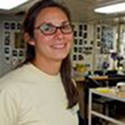
Marine Scientist - Western Washington University
Shawn Arellano is a marine scientist at Shannon Point Marine Center, Western Washington University. She is primarily interested in how life-history variations affect the way invertebrate communities respond to environmental change. Much of her research over the last ten years has focused on the behaviors and biology of the larvae of invertebrates from deep-sea, cold-seep systems. She has done more than 20 manned-submersible dives to cold seeps in the Gulf of Mexico and is eager to compare those relatively stable chemosynthesis-based ecosystems with the dynamic hydrothermal-vent ecosystems on the Mariana Arc. After receiving her doctoral degree from the University of Oregon in 2008 and conducting postdoctoral research in Hong Kong and at the Woods Hole Oceanographic, Shawn joined the faculty of the Shannon Point Marine Center where she builds her research program through undergraduate and master’s student research focused on both local habitats and the deep sea.
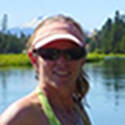
Cooperative Institute for Marine Resources Studies, Oregon State University
Andra Bobbitt has participated in research expeditions for 30 years, with interdisciplinary scientists from around the world using a variety of research submersibles and vessels. Her work has involved processing acoustic navigation for camera systems/submarines/ROVs, collection and synthesis of multibeam bathymetry data, establishing an oceanographic geographic information system (GIS) and serving as the webmaster for the NOAA PMEL Earth-Ocean Interactions Program (formerly the Vents Program). She graduated in 1984 from the University of California at San Diego, where she then began working at the Scripps Institution of Oceanography. In 1991, she moved to Oregon to work for the NOAA Vents Program as part of the Cooperative Institute for Marine Resources Studies at Oregon State University.
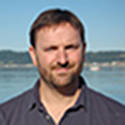
Research Technician - Joint Institute for the Study of the Atmosphere and Ocean
Nathan Buck is a research technician with the Joint Institute for the Study of the Atmosphere and Ocean (JISAO) at University of Washington and the Pacific Marine Environmental Laboratory (PMEL) in Seattle. Nathan received a bachelor's of science degree in marine science from Long Island University, Southampton College, in December 1999. He continued his education at Stony Brook University, where he received a master's degree in the environmental and coastal sciences. Since then, he has worked as an oceanographic research technician. During this cruise, his main responsibility will be to collect samples for trace metals and dissolved inorganic carbon measurements from hydrothermal plumes.
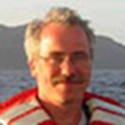
Chemical Oceanographer - Joint Institute for the Study of the Atmosphere and Ocean
Dave Butterfield is a chemical oceanographer with Joint Institute for the Study of the Atmosphere and Ocean (JISAO) at University of Washington and the Pacific Marine Environmental Laboratory (PMEL) in Seattle. His primary scientific interest is in using the composition of hydrothermal fluids to learn about subseafloor processes, ranging from volcanic eruptions to microbiological productivity. Butterfield and his associates will analyze collected hydrothermal vent water samples for major, minor, and trace elements, isotopic composition of H2O, S, Sr, and Pb; and they will also provide material for DNA analysis and microbial culture experiments. Along with many colleagues, Butterfield tries to put the composition of fluids from diverse geological settings into a regional and global context, in an effort to understand the impact of hydrothermal systems on ocean chemistry and ecosystems.
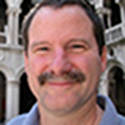
Volcanologist - Oregon State University and NOAA/PMEL
Bill Chadwick is a volcanologist with Oregon State University and NOAA/PMEL. Bill studies volcanoes, both on land andunderwater. He got hooked on volcanoes afterMount St. Helens erupted in 1980, when he was a senior geology major atColorado College. St. Helens became the focus of his graduate work at theUniversity of California at Santa Barbara, where he earned his PhD. His maininterest during the 2014 Submarine Ring of Fire expedition is to investigatethe eruptive behavior of the submarine volcanoes in the Mariana arc.
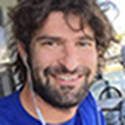
Computer Technician - Scripps Institution of Oceanography
Ben Cohen is a Scripps computer technician. While an undergrad studying computer science, Ben Cohen was fortunate enough to parlay an on-campus student job with the Scripps Institution of Oceanography into summer voyages on two different scientific research expeditions — traveling by sea from Japan to Hawaii to San Diego while collecting data to help model large scale climate variability. After graduating from the University of California - San Diego, Ben signed up with Scripps Institution of Oceanography full-time where he has spent the last seven years as part of a group of scientific technical staff applying his knowledge of obscure digital domains to support a myriad of operations on Scripps research voyages. When not at sea, find Ben clinging for life on a remote rock-face or enjoying an espresso as part of a never ending quest to discover the world’s best coffee shop.
Ben vividly remembers attending an auditorium full of thousands of students in middle-America one otherwise normal school day for what turned out to be a live-video tele-conference with cutting edge scientists at sea and their powerful instrument of exploration: the Jason ROV. He remembers being fascinated by all the technical wizardry needed to make that event happen (and remembers also feeling some small amount of jealousy toward the lucky student allowed to remotely operate one of the ROVs cameras). It’s not without a sense of childish excitement that after all these years he is now going to see the modern version of Jason in action firsthand from the deck of the R/V Revelle.
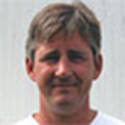
Senior Engineering Assistant - Woods Hole Oceanographic Institution
Alberto (Tito) Collasius Jr. is a senior engineering assistant in the Applied Ocean Physics and Engineering Department at the Woods Hole Oceanographic Institution. A native of North Dartmouth, Massachusetts, Tito participates in research expeditions at sea as expedition leader with the Jason remotely operated vehicle. In that role he supervises the Jason crew that operates the vehicle and works with the science party to maximize their use of the vehicle. His primary focus at WHOI is the development and operation of robotic vehicles within the Deep Submergence Laboratory. Highlights of his career include being involved in the 1985 discovery of the wreck of the Titanic; exploring underwater volcanoes as they erupt; and participating in the discovery of a perfectly-preserved 3rd century shipwreck in the Black Sea.
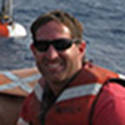
Resident Marine Technician - Scripps Institution of Oceanography
Matt Durham has been a Resident Marine Technician (ResTech) for Scripps Institution of Oceanography (SIO) since 2007. Working on board all four of SIO’s fleet of research vessels, Matt has traveled around the world’s ocean with a variety of different science groups. Scuba diving and photography are a couple of the things that keep him busy when he is not working. Matt loves exploring the different port towns that the teams work out of. He is looking forward to another great cruise!
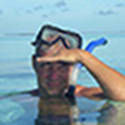
Research Engineer, retired - Woods Hole Oceanographic Institution
Bob Elder has been working in Oceanographic Engineering for about 33 years. After getting a degree in electrical and electronic engineering from San Diego State University, he began his oceanographic career with Scripps working on the Deep Tow project under the direction of Dr. Fred Spiess. Deep Tow was one on the first towed underwater instrument platforms supporting a slow scan TV, film cameras, and an assortment of sonars for gathering science data as well as navigation data. A few years later, Bob relocated his family from sunny California to historic New England when he was offered an opportunity to work with Woods Hole Oceanographic Institution in the Deep Submergence Lab. There he was instrumental in the development, design, and construction of the ROV Jason, one of the first underwater robots that used a fiber optic cable for communication. Jason has continued to evolve and currently supports over 10 TV cameras, 2 manipulators, as well as a host of purpose-built scientific sensors for gathering data and samples. After about 25 years as a Jason engineer, Bob left the tethered vehicles behind and joined the REMUS group, working on autonomous underwater robots. These robots are completely self contained and will run for 24 hours collecting data before returning to the surface for recovery, allowing researchers to gather data that was previously unattainable. Throughout his career, Bob has racked up well over 100 sea trips, proof that the sea is in his blood. As if that weren’t enough time at sea, he and his wife have recently acquired a 42-foot trawler and plan to write the next chapter in their life, starting in the summer of 2015, cruising the Eastern seaboard and Bahamas in their new home away from home.
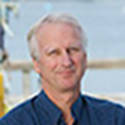
Senior Research Scientist - Bigelow Laboratory for Ocean Sciences
David Emerson has been interested in the microbial iron cycle for over 20 years in both marine and terrestrial environments. His work focuses on understanding the natural history of iron-utilizing microbes in their environment. This knowledge is applied to learning more about the ecological relationships among bacteria within iron-cycling communities and to laboratory studies aimed at isolating new iron-oxidizing microbes and understanding how they can live on iron. He has been involved in numerous research cruises to active volcanic seamounts and deep-ocean ridge systems using either human or robotic deep-sea submersibles. Along with Craig Moyer, he discovered the Zetaproteobacteria, a novel class of Proteobacteria that are involved in iron oxidation and are dominant members of the microbial iron mats that are a focus of this expedition. These bacteria produce novel biomineral structures in the form of filamentous sheaths and stalks that can become fossilized, thus are interesting bacterial biosignatures for investigating life in ancient environments on Earth, and in the search for life on other worlds. Emerson is a Senior Research Scientist at Bigelow Laboratory for Ocean Sciences in East Boothbay, Maine. He is the Principal Investigator for the National Science Foundation proposal that led to this expedition. He is a graduate of the College of the Atlantic and received a Ph.D in Microbiology from Cornell University.
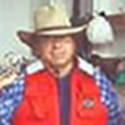
Research Assistant - Oregon State University Cooperative Institute for Marine Resources Studies
Leigh Evans is working as a research assistant for OSU's Cooperative Institute for Marine Resources Studies as part of the NOAA//PMEL helium isotope lab. On this expedition he will be collecting vent fluid and water column samples and possibly gas bubbles and liquid CO2 if nature allows.
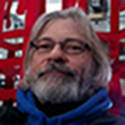
Hydrophone Technician, Mooring Specialist - NOAA’s Acoustic Monitoring Program, Hydrophone Project
Matt Fowler is a hydrophone technician - mooring specialist. He provides all levels of support for NOAA’s Acoustic Monitoring Program, Hydrophone Project. Matt has 18 years experience building, servicing, and maintaining all NOAA Haruphone-based autonomous underwater hydrophone (AUH)/ocean bottom hydrophone (OBH) instruments mounted on various mooring platforms. He is currently supporting approximately 40 deployed mooring systems and developing and assembling 20 next-generation AUH systems.
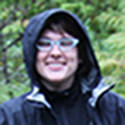
Post-doctoral Fellow - Western Washington University
Heather Fullerton is a post-doctoral fellow working at Western Washington University in the Department of Biology. She got her B.S. in microbiology from the University of Washington in 2005 and Ph.D. in microbiology from Cornell University in 2012. Her research examines microbial communities that are responsible for iron and carbon cycling at hydrothermal vents and other iron-rich habitats. Dr. Fullerton uses computational approaches to understanding metagenomic community data aimed at key organisms and key genes involved in nutrient cycling.
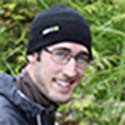
Graduate Student - Western Washington University
Kevin Hager is a first-year graduate student at Western Washington University working toward his M.S. in biology. The Submarine Ring of Fire 2014 expedition will be just his second experience on a research cruise. Specifically, Kevin is interested in the microbiology of hydrothemal vents, including who lives there and how they make a living. On board this cruise, one of his major roles will be extracting DNA from fresh samples for culture independent analysis back at home.
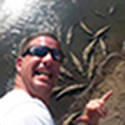
Pilot, Expedition Leader, Navigator
Akel Kevis-Stirling has been working with Jason since 2002. Akel's role within the Jason group is as a pilot, expedition leader, and navigator. He graduated from the University of Hawaii with a B.S. in geology and geophysics in 1998. Akel completed an M.S. in marine geophysics in 2003 with a master's thesis on global plate tectonic modeling. He formerly worked at the University of Hawaii with the Hawaii Mapping Research Group as a sonar and data systems specialist and assistant director of field operations. He now lives in Norwich, England, and does contract work for Woods Hole Oceanographic Institution and within the marine geophysics industry. His hobbies include surfing and golfing, and he now enjoys the waves of the North Sea instead of the North Shore.
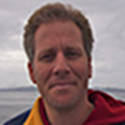
Research Scientist
Ben Larson is a research scientist with expertise in dissolved volatiles, in-situ sensors and geochemical modeling. He has a bachelor’s degree in chemistry from The Ohio State University and a doctorate in oceanography from University of Washington. As a grad student at Udub, he helped develop a chloride sensor that works in 400°C vent fluid and has since been installed in two deep-sea observatories. For the 2014 Ring of Fire cruise, he will be part of the vent fluid sampling team, using shipboard gas chromatography to analyze for H2 and CH4, and in situ sensors to measure pH and O2. One of the main objectives is to characterize CO2-enriched hydrothermal fluids that support mussel communities on Eifuku volcano. Dr. Larson will use data from this cruise to construct geochemical models of hydrothermal reactions in the subsurface biosphere.
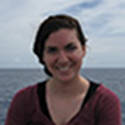
Research Technician - Bigelow Laboratory for Ocean Sciences
Anna Leavitt received a B.A. in Environmental Science from Colby College in 2012 and has since worked as a research technician in David Emerson's lab at Bigelow Laboratory for Ocean Sciences. During this cruise, she will enrich for iron-oxidizing bacteria and collect intact microbial mat samples in order to study the detailed structure and how it reflects the physiology and behavior of these organisms.

Graduate Student - University of Delaware
Sean McAllister is a Ph.D. graduate student working in Clara Chan’s lab studying the microbial ecology, evolution, and metabolic function of marine iron-oxidizing microbial communities. His focus for this cruise is on studying the expression of genes involved in iron oxidation in the marine Zetaproteobacteria through examination of the transcriptome. Additionally, he is interested in collecting intact iron mats to understand the ecology of iron-oxidizing microbes through observation of the extracellular stalks used to control iron mineral formation.
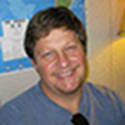
Data Manager - National Deep Submergence Facility, Woods Hole Oceanographic Institution
Scotty is a programmer, system admininstrator, and engineer as Data Manager for the National Deep Submergence Facility, WHOI. With more than 20 years on WHOI’s Technical Staff, he has dealt with data and technologies at the deepest points of the ocean, at the ocean's surface, and from earth-orbiting satellite-born instruments. He is co-author/author of ~27 publications, book chapters, and technical memoranda. He is also a master WHOI staff SCUBA diver and a master rank martial arts instructor.
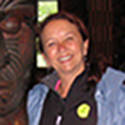
Senior Research Assistant - Oregon State University Cooperative Institute for Marine Resources Studies
Susan Merle is a senior research assistant at OSU's Cooperative Institute for Marine Resources Studies as part of the NOAA EOI (Earth-Ocean Interactions) Program. She specializes in seafloor data acquisition, processing, and analysis, as well as two-, three-, and four-dimensional rendering of ocean features and their geological interpretation. Susan is coordinating with the NOAA Office of Ocean Exploration and Research on the Submarine Ring of Fire 2014 – Ironman website. While at sea, Susan will be working with the ROV Jason team and scientists to document ROV events and decipher ROV navigation. She will also conduct bathymetric and mid-water surveys with the multibeam system on the R/V Revelle and provide overall data management for the expedition.
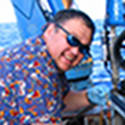
Professor - Western Washington University
Craig Moyer is a Professor at Western Washington University who studies marine microbiology and geomicrobiology focusing on molecular and bioinformatics approaches for exploring microbial diversity, community structure, and ecology. During this cruise, Craig will focus on the ecology of iron-based microbial mats at hydrothermal vents along the Mariana Arc, like those found at NW Eifuku. Craig and former student Richard Davis were the first to describe the primary types of microbial mat communities associated with active hydrothermal venting in this region while also showing that these microbial mats represent microbial hotspots of unusually high biodiversity.

Graduate Student - University of Victoria
Sheryl Murdock has recently transitioned into graduate school at the University of Victoria in Canada after 18 years as a research technician at both the University of Washington and University of Victoria. Her primary experience has been in studying the microbial ecology of prokaryotes (bacteria and archaea) in diffuse fluids and microbial mats associated with hydrothermal vents and oxygen minimum zones. This has included culturing of high-temperature organisms as well as molecular techniques to assess microbial community diversity and functional gene abundances. A project which has been an interest of hers for over a decade has now become the focus of her graduate studies working with Dr. Kim Juniper. On the current cruise, she will be investigating the roles that microbial eukaryotes (protists) play in ecosystem functioning at hydrothermal vents and in surrounding waters. These single-celled organisms, which reside in the same domain of life as more complex multicellular organisms, are not well understood in many areas of the deep ocean and may play a vital role in the oases for life in the deep that occur at hydrothermal vents.
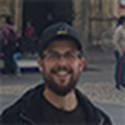
Jason ROV Group
James graduated from Stony Brook University in 2008 with a degree in mathematics. He has worked as a research assistant at Lamont Doherty Earth Observatory and began working with the Jason ROV group in 2006.
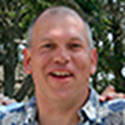
Joint Institute for the Study of the Atmosphere and the Oceans
Joe Resing works for the University of Washington and the Pacific Marine Environmental Lab through the Joint Institute for the Study of the Atmosphere and the Oceans. His research examines the impact on ocean chemistry from the interaction between solid Earth and the ocean. His primary research focus is to examine the impact of submarine volcanoes on biogeochemical cycles of elements in the ocean, with emphasis on the impact of submarine volcanic emissions on the carbon and iron cycles. In 2009, he led a national effort to explore and characterize eruptions located in the NE Lau Basin south of Samoa. During this effort, the ongoing eruption of West Mata submarine volcano was documented and characterized. More recently, he joined the U.S. Geotraces Eastern Pacific Zonal Transect cruise and documented the transport of hydrothermal iron, manganese, and aluminum thousands of kilometers deep into the Pacific Ocean basin. Joe has spent more than 650 days at sea in his career. On a personal front, he enjoys soccer as a player, referee, former coach, and parent. He is currently reading The Gold Finch and recommends In America if you can’t find a good movie to watch.
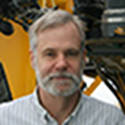
Joint Institute for the Study of the Atmosphere and the Oceans
Kevin Roe has been with NOAA and Joint Institute for the Study of the Atmosphere and the Oceans/University of Washington for 30 years combined and this will be his 75th research cruise. His duties aboard will be water sample splitting, chemical analyses at sea, and maintenance of the fluid sampler. Kevin began going to sea while still a student at the University of Washington (B.S. Oceanography, 1979) and continued studies at Florida State University (M.S. Geochemical Oceanography, 1983). This will be his seventh trip in the Marianas since 2004.
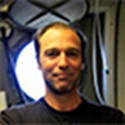
Postdoctoral Researcher - Bigelow Laboratory for Ocean Sciences
Jarrod Scott is a postdoctoral researcher at Bigelow Laboratory for Ocean Sciences. He is an evolutionary ecologist interested in the dynamics of microbial communities and his current research focuses on understanding core microbial assemblages in different marine environments, including mid-ocean ridges, seamounts, and animal hosts. Jarrod's approach is to leverage next-generation sequencing, coupled with bioinformatics and network theory to uncover assemblages that are functionally unified and adapted to specific habitats. During this cruise, he will be collecting samples for microbial community analysis in order to better understand the diversity and distribution of iron-oxidizing bacteria and their associated communities.
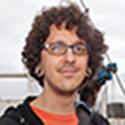
Research Assistant Professor - University of Southern California
Jason Sylvan is a research assistant professor in the Department of Biological Sciences at University of Southern California. He studies the geomicrobiology and biogeochemistry of deep-sea habitats, including hydrothermal vents, seafloor exposed ocean crust, and the biosphere in subseafloor basement rock. This will be Jason's twenty-first research cruise and his first to the Mariana Arc. He loves the excitement of being out at sea and working in a group towards a common goal. For Jason, there's nothing better than waking up on a ship and knowing that you are already at the office. For this cruise, Jason will be collecting samples to study how microbiology on hydrothermal vents that are no longer active differs from those that are actively venting. He is also interested in collecting seafloor volcanic crust samples to understand how volcanic rocks with different geochemical compositions select for different microbial communities and if this has implications for biogeochemical cycles.
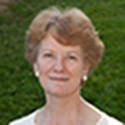
Marine Biologist - Univerity of Victoria
Verena Tunnicliffe is a marine biologist at theUniversity of Victoria in Canada. For Verena, a lifetime of ocean exploration has stretched from coral reefs to subsea volcanoes with many stops along the way to understand how life adapts to extreme ocean conditions. She spent a decade leading development of the VENUS observatory to support real-time study of marine communities. On this mission, she will work on the resilient shrimp of NW Rota and how the mussels of Eifuku respond to very low pH.
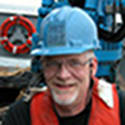
ROV Pilot - Jason ROV Group
Jim Varnum lives in Seattle, Washington, and has been designing electronics and piloting ROVs for over 32 years. He has been a Jason-1/Jason-2 pilot for 21 years and enjoys the challenges that each cruise brings. Jim also installs the science instruments and tools onto Jason's front "basket" (actually a retractable platform). He is adept at creating complex, but usable, basket configurations. As a pilot, Jim likes non-repetitive, manipulator intensive work. One of his favorite jobs was when he installed one of three underwater thermoelectric generators at Axial Seamount in 2013.
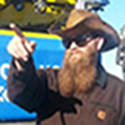
ROV Pilot - Jason ROV Group
Korey has been working for the Woods Hole Oceanographic Institution since 2008. After working a few years as an Alvin pilot-in-training, he transferred to the Deep Submergence Lab to work with the ROV Jason II. Korey has been a Jason pilot for the last year and loves it. The first cruise he did with Jason was out of Guam and included a visit to NW Rota. Ever since that trip, Korey has been waiting to go back. He is very excited for this cruise. He also likes cats and the Green Bay Packers.
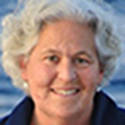
Oceanographer - NOAA’s Pacific Marine Environmental Laboratory
Sharon Walker is an oceanographer from NOAA’s Pacific Marine Environmental Laboratory in Seattle, Washington. As a member of the NOAA Earth-Ocean Interactions (EOI) program, she specializes in the development of methods and instrumentation for the detection, monitoring, and mapping of hydrothermal plumes in the ocean above mid-ocean ridges and submarine volcanoes. She is also interested in how fine ash disperses into the ocean from actively erupting submarine volcanoes. She has participated in numerous research expeditions since 1979, including several to the submarine volcanoes of the Mariana (between Guam and Japan), Kermadec (north of New Zealand) and Aeolian arcs (Italy).